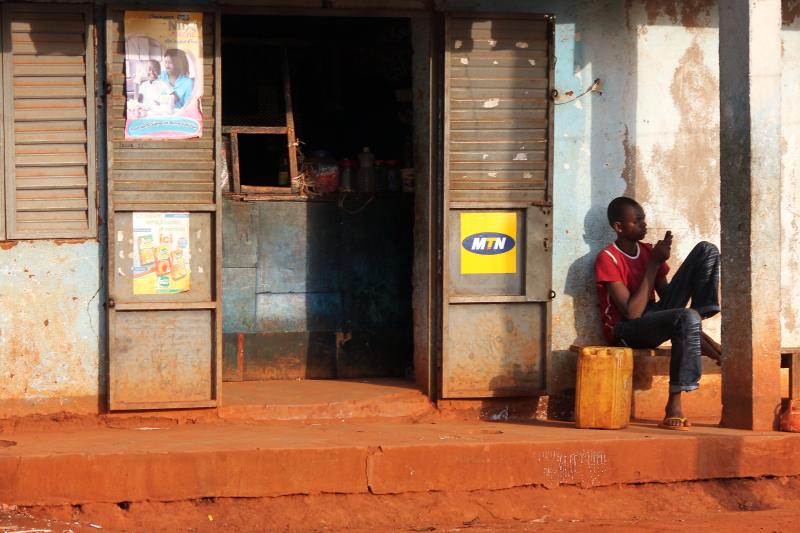As U.S. presidential candidates hem and haw about whether to erect physical barriers to guard borders from undocumented migrants, other countries are doubling down on the economic benefits of supporting migrants and refugees.
The U.N. estimates that more people are now displaced than anytime since World War II. And for many of the estimated 60 million refugees in the world, they must build their livelihoods completely anew. Aid focused on access to food and healthcare is essential, but there is a need for longer-term support. One solution piloted in Ghana is already supporting economic growth, and it only requires a mobile phone.
[blockquote author=”John Roberts, Open University of West Africa” pull=”pullleft”]What’s going to empower the masses is if you can help the person who is selling onions on the side of the road to diversify their products or figure out a value-add.[/blockquote]
The Open University of West Africa (OUWA) distributes mobile phones loaded with cached educational tools to people living in camps and in rural villages in Ghana. Founded by John Roberts and Patrick Steele in 2011, the idea was to establish a University that would provide West Africans who normally would not be able to afford to go to school, access to higher education and lifelong learning. In West Africa, less than 10 percent of students are enrolled in an institution of higher education, and extreme poverty is a life-threatening reality for many.
OUWA pivoted towards refugees in addition to rural villages after participating in an IDEO challenge—an international design and consulting firm based in California—of how to provide education to refugee camps.
What the duo learned in their pilot was that there was a unique leverage point beyond providing set curriculum designed to usher a student through the standard institutional trajectory. They saw immediate benefit when improving the naturally occurring climate of entrepreneurship.
“What’s going to empower the masses is if you can help the person who is selling onions on the side of the road to diversify their products or figure out a value-add,” explains Roberts. “They potentially start earning four to five times as much income. The secondary effects from a development perspective are overwhelming. Imagine someone earning a dollar a day suddenly can earn 4 dollars a day, then they can go to a clinic and access services.”
The materials are dubbed in tribal languages and use animations to include those who are illiterate.
Steele and Roberts began their work in Ghana by opening an internet cafe that acted as a hub for students to access online education. They quickly realized they needed to expand to reach underprivileged populations. “We are creating a scalable option with low barrier to entry that’s affordable,” says Roberts.
The next iteration of their platform is an Android app for phones that are loaned to groups of people. The average user pays around one dollar per month. OUWA built incentives into their model for those who perform well. For students studying entrepreneurship, there are opportunities to gain access to micro-credit loans and participate in incubators supported by international organizations that invest in the students’ projects.
“Participating in online education can transform your life here and now,” says Roberts. “Our hypothesis is if we offer a simple user experience with a quality entrepreneurship curriculum, then we will increase income and a basis of well being.”
[seperator style=”style1″]Disclosure[/seperator]
 This article is the latest in ImpactAlpha’s partnership with Unreasonable.is. The author is Cayte Bolser, an Unreasonable correspondent, who collects stories and lessons from and for entrepreneurs dedicated to solving the world’s most pressing problems. She writes on a variety of subjects including science, technology, international development, the environment and travel. Reposted with permission.
This article is the latest in ImpactAlpha’s partnership with Unreasonable.is. The author is Cayte Bolser, an Unreasonable correspondent, who collects stories and lessons from and for entrepreneurs dedicated to solving the world’s most pressing problems. She writes on a variety of subjects including science, technology, international development, the environment and travel. Reposted with permission.
Photo Credit: Creative Commons











